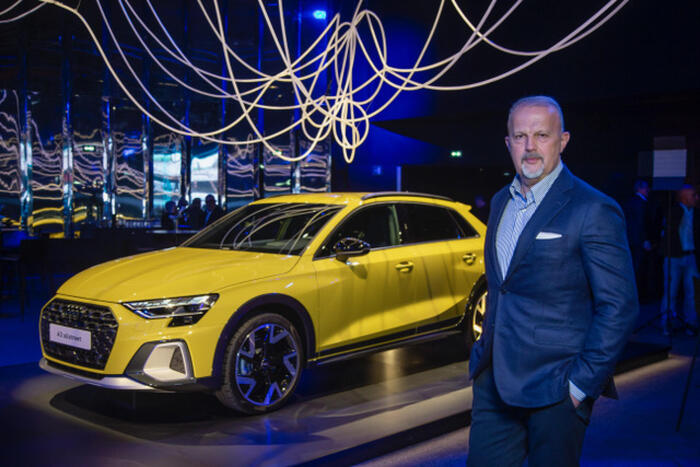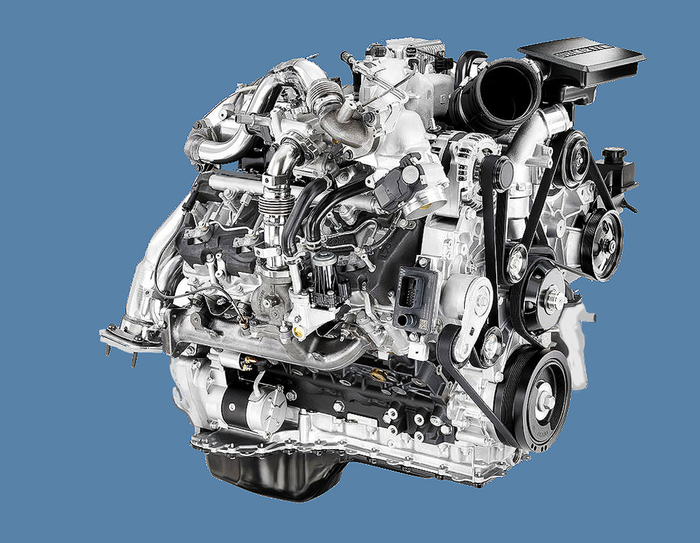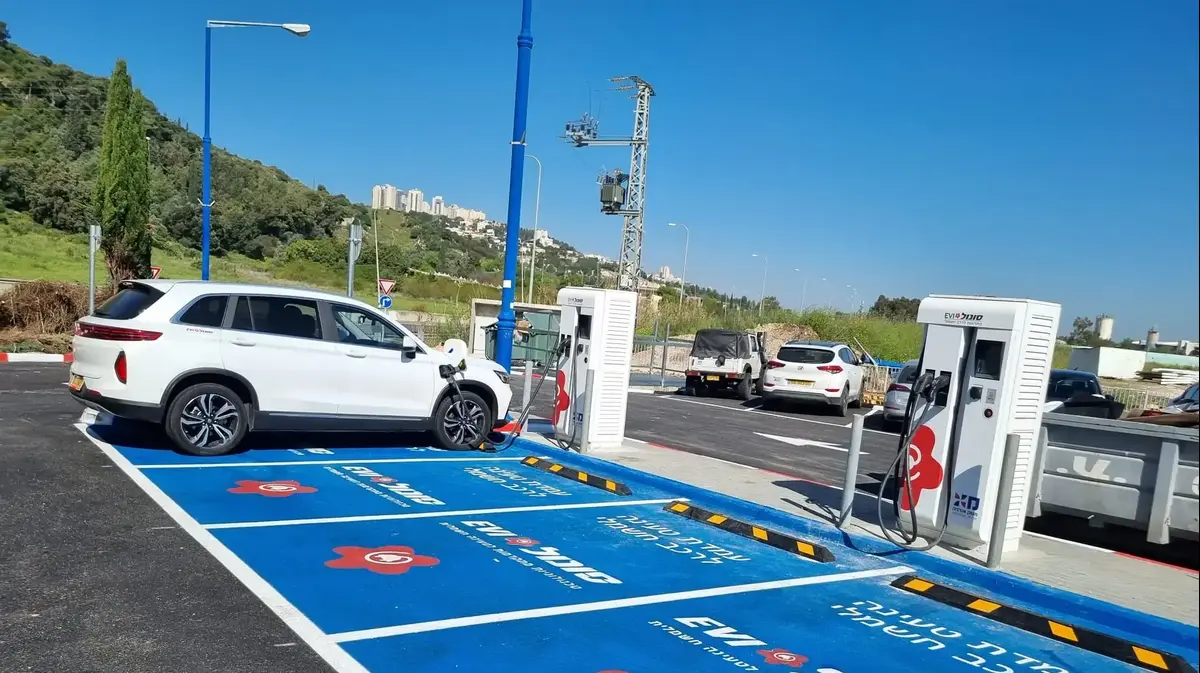Enlarge image
Battery instead of gasoline: Audi RS e-tron GT
Photo: sagmeister_potography / Audi
The combustion engine still has five years, then its time will come to an end - at least in Audi's model range.
From 2026, the brand with the four rings does not want to bring any new models with diesel or gasoline engines onto the market, including hybrid cars.
According to media reports, the last premiere of a combustion model will be a model from the Q series in 2026, which will be sold until the beginning of the 2030s.
This marked the end of the internal combustion engine for the first German manufacturer.
But why does Audi of all people decide to take this step?
After all, the brand is known for robust five-cylinder engines, powerful RS models and the first overall victory for a diesel racing car at the 24 Hours of Le Mans.
It also has to do with the cycles in which the auto industry operates.
2026 still seems a long way off, but in car production it feels like the day after tomorrow.
Car manufacturers now have to decide how much money they want to invest in combustion technology, explains Stefan Bratzel, head of the Center of Automotive Management (CAM).
In order to have models in 2026, this decision has to be made now, according to Bratzel - and then invest.
»Audi would have to renew its combustion engine platforms in order to remain competitive from 2026 onwards.
Just adapting the bare essentials is not an option for a premium manufacturer, you have to be innovative, «says Bratzel.
Especially with a brand like Audi that promises “Vorsprung durch Technik”.
A3 and A4 drive into the sunset
If Audi were to remain loyal to the combustion engine for longer, the company would still have to invest in electric vehicles at the same time in order to keep pace with the EU's CO2 fleet limits.
When it comes to battery cars, Audi faces tough competition from Tesla, Hyundai, but also newer brands such as Nio.
In view of the CO2 laws, it may not be worthwhile to continue investing in combustion engines, warns Bratzel.
And so everything is evidently going pretty quickly. Audi will initially do without two high-selling classics, reported the »Süddeutsche Zeitung«: A3 and A4 will therefore no longer have direct successors and will be renamed. "A3 and A4 are about to be renewed, at the same time volume vehicles are becoming somewhat more expensive due to stricter CO2 limits and Euro 7," says CAM Director Bratzel. Renewing both models would therefore involve a lot of effort.
The internal combustion engine is reaching its limits technically.
Technology consultant Peter Fintl from Capgemini Engineering explains that this is a successful technology that is over a hundred years old.
“We are now close to the maximum that physics can provide.” It makes sense that Audi starts with A3 and A4 of all places.
»Starting with bestsellers is obvious.
You have to broaden e-mobility because of the CO2 fleet requirements, ”says Fintl.
Withdrawal from combustion in 2026: yes, but
The fact that no new combustion models will be launched from 2026 leaves the question unanswered as to when exactly the last copy of this type will roll off the assembly line.
The last talk was of 2033 and the Q8.
According to industry circles, however, the existing range may be sold off for a longer period of time, perhaps until 2035. This would give Audi some room for improvement financially.
Even so, the VW subsidiary is faced with a "Herculean task, but there is no getting around it," as CAM Director Bratzel puts it.
Switching to the electric drive is comparatively easy.
But Audi must manage to take customers with it who are still interested in the combustion engine.
Bratzel sees getting enough batteries only to a limited extent as a problem.
Battery manufacturers built up large capacities.
Group parent Volkswagen has a stake in the Swedish manufacturer Northvolt.
Parent company VW gives Audi advantages
Being part of a larger group also helps Audi with the platforms.
"With the MEB there is a platform for smaller models, together with Porsche you can develop a kit for premium electric models and save money in this way," explains CAM expert Bratzel.
The brand has an advantage over competitors such as BMW and Mercedes - because they are on their own.
Media reports that the brand is providing the combustion engine with an expiration date should also give it an image boost in public perception.
The stock market rewarded General Motors for the announcement that it would switch to locally emission-free vehicles with a rising share price.
In fact, Audi is not the first manufacturer in the world with such big plans.
From 2030, Volvo wants to only build pure electric cars.
So far, the club that Audi would like to join has been manageable - that fits in with the exclusive claim of a premium brand.
"Audi is now marching forward, but electrification is strategically prescribed in the group," explains CAM director Bratzel.
Audi has to keep Chinese customers
However, that shouldn't hide the other challenges Audi is facing.
So the Ingolstadt-based not only have to change the model range and convince European combustion fans to use electric driving, they also have to keep an eye on the most important car market: China.
There, the manufacturer has to get customers into the e-cars and persist against local manufacturers who are increasingly catching up.
An industry insider warns that customers in the People's Republic are not very loyal to the brand.
Retaining customers could, however, become a problem for Audi, they say - the nomenclature of the models is too untidy.
Name chaos becomes a problem
Audi could continue the current hierarchy of A, S and RS.
But the top electric model, which could actually be classically referred to as the RS7, is already breaking through the scheme of letters and numbers and is only called RS e-Tron GT.
However, customers want to know whether they are in a sporty or a comfortable corner, warn industry experts.
Audi also faces many tasks when it comes to technology.
The company must continue to deliver on the promise of Vorsprung durch Technik that the brand is associated with.
Audi's all-wheel drive Quattro or the special sound of the five-cylinder are no longer a distinguishing feature in the electric drive world.
In order to maintain the premium claim, the next generation of battery technology is needed as soon as possible, according to industry circles.
By the middle of the decade, the solid-state battery should be available in the Audi sports models to be ahead of Tesla.
The Volkswagen group is also working on the technology.
Such batteries save weight and space, while more energy can be stored at the same time.
This in turn enables greater ranges.
Industry experts say that this offers important added value and can call for higher prices than other brands.
It is assumed, however, that Audi will get access to the new batteries at an early stage within the VW Group.
Overall, Audi's move seems to have come at the right time.
"The question is no longer whether the ramp-up of electromobility will take place, but how steeply," says technology consultant Fintl.
"It is therefore right to approach this topic ambitiously."
The change should remain manageable in the streetscape.
In the end, Audi will have a fairly identical range of models, says CAM Director Bratzel, "the niche with vehicles like the Q8 will remain."













